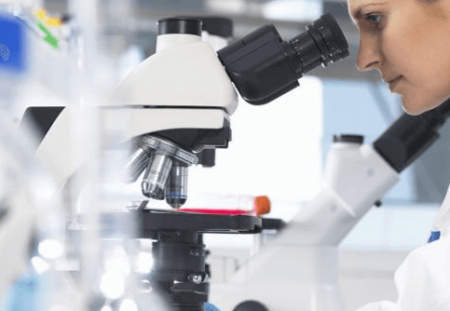Neuron cells have long finger-like structures, called axons, that extend outward to conduct impulses and transmit information to other neurons and muscle fibers. After spinal cord injury or stroke, axons originating in the brain’s cortex and along the spinal cord become damaged, disrupting motor skills. Now, reported today in Neuron, a team of scientists at Hospital has developed a method to promote axon regrowth after injury. …
To stay healthy, our lungs have to maintain two key populations of cells: the alveolar epithelial cells, which make up the little sacs where gas exchange takes place, and bronchiolar epithelial cells (also known as airway cells) that are lined with smooth muscle.

Help just a phone call away
To stay healthy, our lungs have to maintain two key populations of cells: the alveolar epithelial cells, which make up the little sacs where gas exchange takes place, and bronchiolar epithelial cells (also known as airway cells) that are lined with smooth muscle.
- Read the full article (PDF file).
- Read the official press release announcing the discovery.
- Learn more about this exciting breakthrough.
- Definition of the research field of angiogenesis.
FAQs
The small intestine is much more than a digestive organ. It’s a major home to our microbiome, it’s a key site where mucosal immunity develops and it provides a protective barrier against a variety of infections. Animal models don’t do justice to the human intestine in all its complexity.
Attempts to better model human intestinal function began with intestinal “organoids,” created from intestinal stem cells. The cells, from human biopsy samples, form hollowed balls or “mini-intestines” bearing all the cell types of the intestinal
The small intestine is much more than a digestive organ. It’s a major home to our microbiome, it’s a key site where mucosal immunity develops and it provides a protective barrier against a variety of infections. Animal models don’t do justice to the human intestine in all its complexity.
Attempts to better model human intestinal function began with intestinal “organoids,” created from intestinal stem cells. The cells, from human biopsy samples, form hollowed balls or “mini-intestines” bearing all the cell types of the intestinal
The small intestine is much more than a digestive organ. It’s a major home to our microbiome, it’s a key site where mucosal immunity develops and it provides a protective barrier against a variety of infections. Animal models don’t do justice to the human intestine in all its complexity.
Attempts to better model human intestinal function began with intestinal “organoids,” created from intestinal stem cells. The cells, from human biopsy samples, form hollowed balls or “mini-intestines” bearing all the cell types of the intestinal
